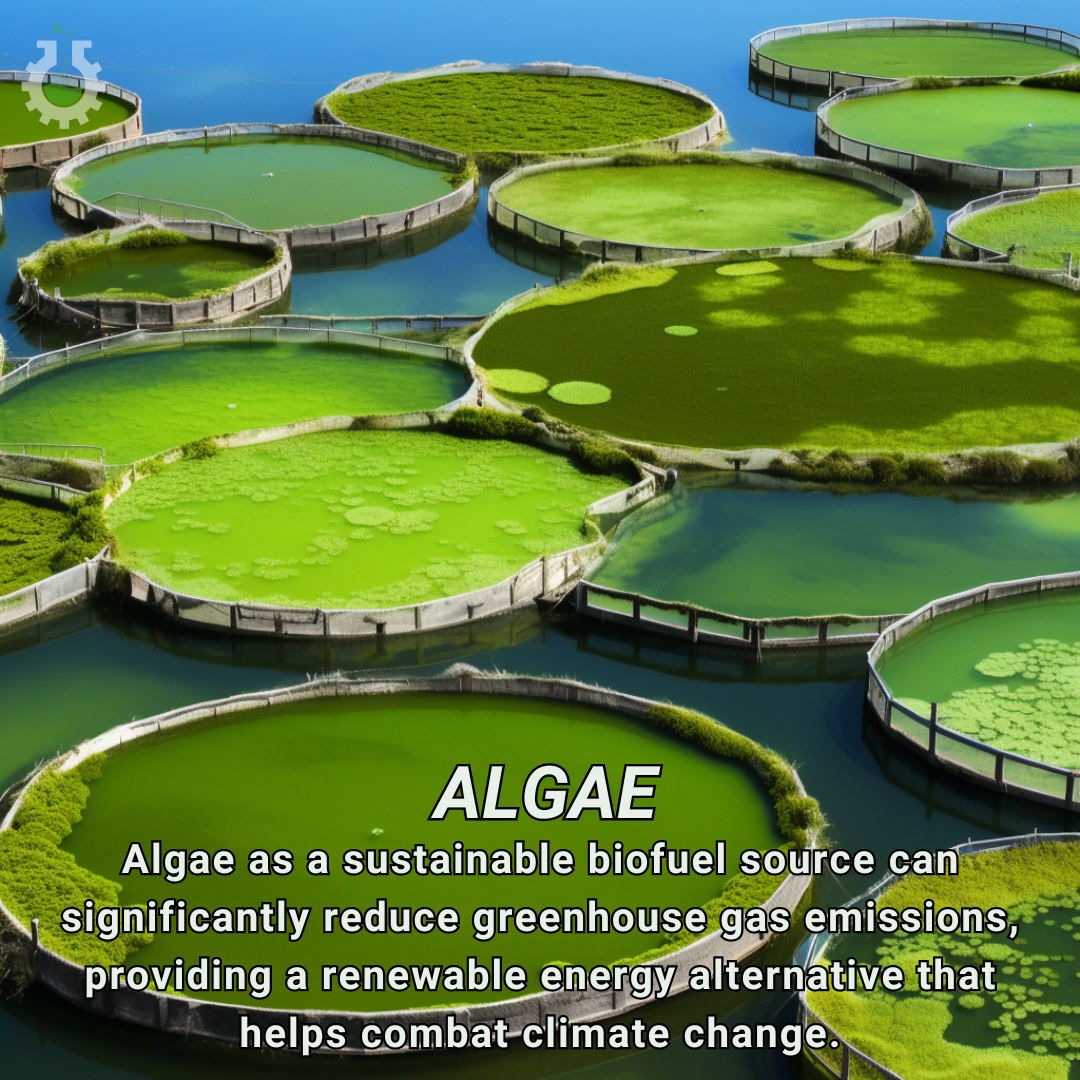May 22, 2024
Climate Change Poster Collection of the Day – Algae
Book a Demo
Today’s Climate Change Poster Collection highlights Algae, often dismissed as mere pond scum, is emerging as a powerhouse in the quest for sustainable energy solutions, particularly in the realm of biofuels. This unassuming organism holds the promise to address some of the most pressing environmental challenges of our time, including climate change. Unlike traditional fossil fuels, which are finite and contribute significantly to greenhouse gas emissions, algae-based biofuels offer a renewable and eco-friendly alternative. One of the most compelling advantages of algae is its versatility in cultivation. Algae can thrive in a variety of environments, from freshwater to saltwater, and even in wastewater, making it an exceptionally adaptable resource. This flexibility means that algae cultivation does not compete with food crops for arable land, thereby sidestepping one of the major criticisms of first-generation biofuels derived from corn or sugarcane.
Moreover, algae boast an impressive growth rate and a high yield of oil per acre, far surpassing that of traditional terrestrial biofuel crops like soybeans or palm oil. This rapid growth is not just a boon for productivity but also for sustainability. Algae can be harvested year-round, providing a continuous supply of biomass that can be converted into various types of biofuels, including biodiesel, bioethanol, and biogas. These biofuels can seamlessly integrate into existing fuel infrastructures, making the transition to greener energy sources more feasible and less disruptive. One of the most remarkable attributes of algae is its ability to act as a carbon sink. During photosynthesis, algae consume carbon dioxide, a major greenhouse gas, and release oxygen. This natural process can be harnessed to capture and sequester carbon emissions from industrial sources, thereby reducing the overall carbon footprint. In essence, algae not only provide a renewable energy source but also contribute to carbon mitigation, addressing two critical aspects of climate change simultaneously.
The potential of algae as a sustainable biofuel source is further amplified by advancements in biotechnology and genetic engineering. Researchers are continually exploring ways to enhance the lipid content of algae, improve growth rates, and optimize harvesting methods. These innovations are driving down the cost of algae-based biofuels, making them increasingly viable for large-scale production. For instance, genetic modifications can enable algae to thrive in suboptimal conditions, further expanding the range of environments where they can be cultivated. As the world grapples with the urgent need to transition to cleaner energy sources, the role of algae biofuels cannot be overstated. Governments, private enterprises, and research institutions are beginning to recognize the untapped potential of this green gold. Investments in algae biofuel research and development are on the rise, signaling a growing commitment to sustainable energy solutions.
The development and adoption of algae biofuels could play a pivotal role in achieving global climate goals, such as those outlined in the Paris Agreement. By reducing reliance on fossil fuels and lowering greenhouse gas emissions, algae biofuels offer a pathway to a more sustainable and resilient energy future. Furthermore, the co-benefits of algae cultivation, such as wastewater treatment and nutrient recycling, add another layer of environmental and economic value. In conclusion, algae represent a beacon of hope in the fight against climate change, demonstrating that sustainable solutions can indeed be found in the most unexpected places. The journey from pond scum to biofuel powerhouse is a testament to the transformative potential of innovation and the relentless pursuit of a greener future. As we look ahead, the continued development and integration of algae biofuels into our energy landscape could very well be a game-changer, fostering a more sustainable and harmonious relationship with our planet.
Discover an inspiring collection of climate change poster.



